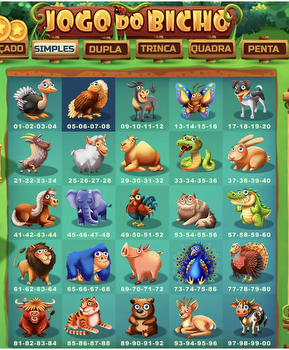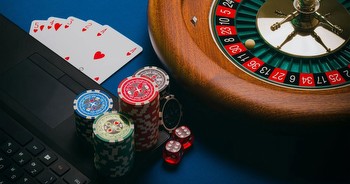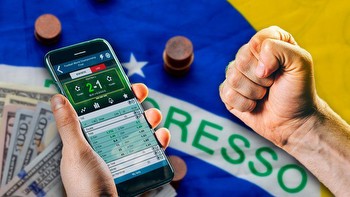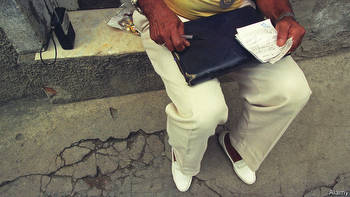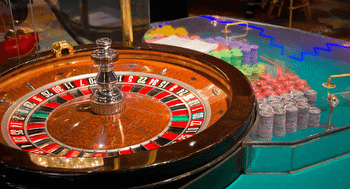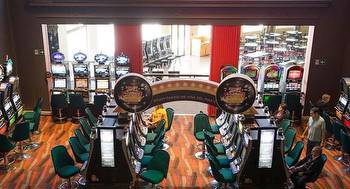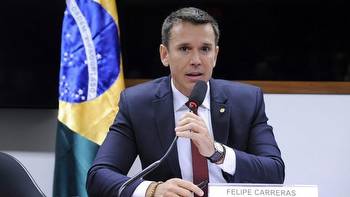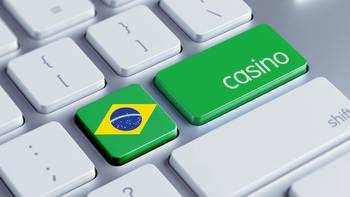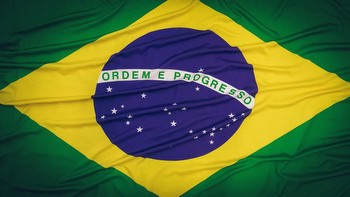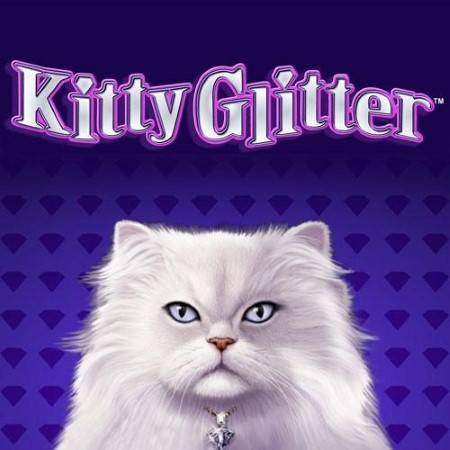Legalization of gambling in Brazil, in particular casino gambling

Partner and CEO of JCO Consultancy
The potential of Brazil’s gambling market is huge, namely in the richest States of Brazil – in particular in the State of São Paulo (SP).
The Extended Metropolitan Area of São Paulo is an agglomeration of five contiguous metropolitan areas that have grown into one another and three micro-regions, dominated by São Paulo; it has more than 36 million inhabitants.
The State of São Paulo (SP) has c. 47 million residents (c. 22% of the total of Brazil’s population) and accounts for c. 31.2% of Brazil’s GDP. The wealth produced by the state in the year of 2020 totaled more than US$ 453 billion (R$ 2,32 trillion), the equivalent of US$ 9,771 per capita (R$ 50.264,71) (this figure is 42.9% higher than the national average) or US$ 23,100 per capita, calculated using implied PPP conversion rate from World Economic Outlook, IMF (IBGE and Seade).
São Paulo concentrates more than half the wealth generated by Brazilian financial institutions, also leading in services provided to companies (40.84%), information (49.64%), health and education services (37.3%).
Three of the Brazil’s larger 12 metropolitan areas are in the São Paulo State. Several other large metropolitan areas in the country are also appealing markets and opportunities. The main metropolitan areas in Brazil are as follows:
Rio de Janeiro metropolitan area ranks immediately after São Paulo, not only due to the size of its population, but also because it is an international civil aviation hub and a renowned tourism and entertainment destination. The State of Rio de Janeiro (RJ) had in 2017 a GDP of US$ 308 billion (c. 5% of Brazil’s GDP), the equivalent of US$ 18,450 per capita, calculated using implied PPP conversion rate from World Economic Outlook, IMF.
But even Curitiba (capital of the State of Paraná) metropolitan area, with a total population over 3.5 million people (ranking 9 in population in Brazil), is appealing; the GDP of the State of Paraná in the year of 2015 totaled more than US$ 203 billion, the equivalent of US$ 18,000 per capita, calculated using implied PPP conversion rate from World Economic Outlook, IMF.
In spite of large inequalities in the distribution of income, in these metropolitan areas the VIP segment is good or very good (e.g., São Paulo has the world’s largest fleet of urban private helicopters) and the middle class enjoys a reasonable / good disposable income that has grown until 2019 and most likely will grow again with the post-covid economic recovery.
On 2019 Brazil still had a significant number of international leisure tourists – c. 6.4 million – whose main destinations were well known leisure touristic spots (Foz do Iguaçu, Armação de Búzios, Angra dos Reis, Paraty, Balneário Comboriú, Itapema, Ipojuca, Natal) and some large cities (São Paulo, Rio de Janeiro, Florianópolis, Salvador da Baía, Fortaleza).
Gambling in Brazil has been illegal and without structured legislation since 1946. Until recently, Brazil’s legislation on gambling – Decree-Law 3688/1941 – prohibited gambling and established penalties for those who conducted it with the exception of the state monopoly on lotteries and betting on horse racing in [a few] authorized locations. According to this law, the operation of gambling in Brazil is a criminal misdemeanor. The mentioned Decree-Law considers the following to constitute gambling:
•games in which winning or losing depends exclusively or mainly on luck (casino gaming);
•betting on horse racing outside of a racetrack or other authorized area;
•sports betting.
Notwithstanding, there is widespread illegal gambling in the country. The most popular illegal game (except in the State of Paraíba where it is “legal”) is “jogo do bicho”, a lottery-type drawing, operated on a regional basis using the daily state lottery draw, in which players place bets on numbers that are associated with or alluding to animals.
There is also a shortage of fiscal revenue at all levels of government of the Brazilian Federation; many of the Brazilian States want additional fiscal revenue and perceive gambling, in particular casino gambling, as the easier road to it.
Several South-American countries already legalized it in order to attract foreign tourists, to diversify the touristic products available and to increase government revenue. For some time, there have been rumors of the impending legalization of several modalities of gambling in Brazil. During the government of former President Temer, the way for the legalization of gambling, including casino gambling, was paved by setting up a special Commission in the Brazilian Congress where preparatory work and political negotiations took place. The discussions on the legalization of gaming and gambling, the model for the regulatory framework of the gaming sector, how to regulate and tax it and the division of tasks amongst the several layers of the Federation continued in the same Congressional Commission.
The first output of this Congressional Commission’s work concerned sports betting; on December 2018 the National Congress approved Law No. 13,756/2018 that legalized the so-called “fixed-quota bets related to real events with a sports theme”, authorizing their exploitation by private companies. Currently, the regulation of the law by the Executive Branch is under way, with several public hearings having been held. It is expected that the regulation will be presented in the coming months.
In the meantime, as regards public lotteries, on September 2020 the Supreme Court handed down a definitive decision that recognized that the 27 Brazilian States are authorized to institute their own lotteries just as the Federal Union does. Several states have already started procedures to choose private companies to implement their operations.
PL 442/91 , – submitted in 1991 (!) – was finally approved on February of 2022, at the House of Representatives, legalizing a wide array of modalities of gambling in the country. This Bill is now pending approval in the Federal Senate, as PL N° 2234, of 2022. In terms of political calendar, the next step will be the Senate approval, delayed by the Presidential election, and expected to take place during this year. The approved Bill will then be sent to the President for sanction / promulgation and, subsequently, the Ministry of the Economy (or State Governments by delegation) will enact the respective implementation regulations.
This Bill (PL 442/91, now PL N° 2234, of 2022) legalizes the following modalities of games:
i) Casino games;
ii) Bingo games;
iii) Online games;
iv) Jogo do bicho;
v) Turf betting;
vi) Games of skill.
A federal-level National System of Games and Bets (Sinaj) is to be setup, and the Bill also foresees the necessary creation of a “federal regulatory and supervisory agency” for the sector, with powers to be defined in the regulations creating it, to be enacted by the federal Ministry of the Economy.
It will also be necessary to create a proper legal and regulatory framework. More likely, several legal and regulatory frameworks for different modalities of gambling. According to the Bill, the licensing of gambling activities will be made by the [federal] Ministry of the Economy and the licensees can only be legal entities with a restricted corporate purpose that needs to include in their denomination the expression “entity operating games and bets”. Albeit this Bill-Law is a very good first step, it is important that the Brazilian authorities understand that a more complete and comprehensive legal framework, that complies with international standards, is of paramount importance. For many reasons. Namely because large casino and gaming and betting operators, their investors and financing entities of sizable investments in integrated leisure complexes with casinos need such a legal and regulatory framework in place. While casino resorts may still be a few years from becoming a reality in Brazil, it will take time to set up a proper and comprehensive legal and regulatory framework that may be prepared in tandem with the political calendar of legalization via approval of this Bill and enactment of the subsequent regulations.
The Bill allows publicity of games of chance with the usual restrictions (Art.s 79-80). However, advertising of the games and of betting is bound to social responsibility and the search for awareness of responsible gambling (Art. 77). Publicity and marketing of operators or brands not licensed in Brazil is forbidden (Art. 78).
Credit for gaming is prohibited, in whatever form (Art.s 46, 56 VIII).
The Bill does not create restrictions for Brazilian nationals on the access to licensed casinos and other gaming or gambling venues. We also did not find restrictions on payment processing for the gaming and betting operators duly licensed (except when credit is involved).
The Bill is extensive and covers several other matters, including some rules on suitability, financial capacity, the integrity of gaming, gamblers’ rights, responsible gambling, gaming supervision and monitoring, auditing and accounting, prevention of money laundering and counter-terrorism including internal governance, controls and procedures, administrative infractions and penalties, crimes against gaming and betting.
Bingos
In the case of bingo, the Bill permits its operation on a permanent basis only in “bingo houses” (Art. 59 et seq). The minimum area for a bingo house is 1,500 square meters, where up to 400 video bingo machines can be operated. Slot machines are banned from these establishments. A maximum of one bingo house license per 150,000 inhabitants will be allowed. Bingo houses must have a minimum capital of R$ 10 million. Municipalities and the Federal District (DF) are allowed to explore bingos in stadiums with capacity >15,000 fans. Brazil has 5,568 municipalities and c. 215 million inhabitants; it is estimated that there will be up to 7,000 bingo houses in Brazil.
Licenses for a bingo house will be for 25 years, renewable for the same period (Art. 64).
Jogo do Bicho
Licensees of the jogo do bicho must have a minimum share capital of R$ 10 million and reserve of funds as guarantee for payment of the obligations and duties stipulated in the project, which may be in the form of a cash deposit, guarantee-insurance or bank bond, except as regards the prizes. There may be a maximum of one operator of this game per 700,000 inhabitants of the State or DF. Redeeming prizes up to the income tax exemption limit will not require identification from the bettor (Art. 67 et seq). The license will be for a period of 25 years, renewable for the same period if the requirements are met (Art. 69).
Casino Gambling
According to the Bill, casinos can be installed in resorts as part of an integrated leisure complex that must contain at least 100 high-end hotel rooms, meeting and event venues, restaurants, bars and shopping centers. The physical space of the casino (not equivalent to gaming floor) cannot be >20% of the built area of the complex (Art. 50).
For the determination of the specific areas where casinos can exist, the Executive Branch should consider the existence of tourism heritage and the economic and social potential for the development of the region (Art. 52).
The number of casinos spread throughout Brazil will follow its demographic density. States with more than 25 million inhabitants (São Paulo alone, for now) may have three casinos, between 15 and 25 million (Rio de Janeiro and Minas Gerais) two, and less than 15 million only one (Art. 53). Additionally, the Executive Branch may grant the operation of casinos in leisure complexes for up to two establishments in States with a size of more than 1 million square kilometers (Amazonas and Pará) (Art. 53, § 3).
A given economic group cannot operate more than one casino per State (Art. 53, § 1).
Tourist casinos
In locations classified as tourism hubs or destinations (by the Ministry of the Economy), a casino may be allowed, regardless of the population density of the State in which it is located. The proposal defines these tourism hubs or destinations as those that have regional identity, adequate infrastructure and offer of tourist services, high density of tourists and title of natural heritage of Mankind, besides having tourism as an important economic activity. Nonetheless, a tourist casino cannot be located less than 100 kilometers away from any casino within an integrated leisure complex (Art. 52, § 2~5).
Riverine and maritime vessel casinos
The Bill still foresees the operation of casinos in river vessels, one for each river with 1,500 km to 2,500 km long; two for each river with an extension between 2,500 km and 3,500 km; and three per river with an extension longer than 3,500 km. These vessels may not be anchored in the same location for more than 30 consecutive days (Art. 54).
It will also be possible to operate casinos in maritime vessels, within Brazil’s “national territory”, with a cap of up to ten establishments / vessels (Art. 55).
Both river and maritime vessels ships must have, at least, 50 high-end rooms, meetings and events venues, as well as restaurants, bars and shopping centers (Art. 56, § 3º).
Public tender
Casino gaming exploitation will be possible only for holders of a license (Art.s 2º X, XVII, 11 IV, 19, 22 II, 27, 28, 29, 30, 31, 32, 35, 76 III, 78, 94 I, 96 IV, V, VII, 100, 119) to be granted by the federal Ministry of the Economy. With a few exceptions, the adjudication of a license will be made following a public tender (in the technical and price modality) (Art. 53, § 2º). As regards its term, each license will be valid for 30 (thirty) years (Art. 56) renewable for the same period.
The selection criteria for the adjudication of a license in said public tenders are set forth in Art. 56: (I) the entertainment and leisure options committed to be offered; (II) investment amount committed and term for setting up the integrated leisure complex; (III) integration of the complex with the conditions of environmental sustainability of the area chosen for its implantation; (IV) preferential hiring of local human resources; (V) number of jobs to be created; (VI) investments (by the licensee), in the maintenance of the casino, compliance with the rules of safety in the construction, expansion, renovation or reequipment of casinos; (VII) training programs – with effective use of the professionals trained – in hospitality, tourism and related services. For tourist casinos, the criteria (I), (II) and (III) shall not apply.
Modalities of casino games
The Bill does not limit the modalities of games to be explored by casino gaming licensees, mentioning specifically “games of cards such as blackjack or baccarat, electronic games and roulette, among others”, as well as “new modalities of games of chance, duly authorized” (Art. 51).
Electronic gaming and betting machines
An interesting precept of the Bill (Art. 45) stipulates that “electronic gaming and betting machines will be exploited in the proportion of 40% (forty percent) for the leasing company and 60% (sixty percent) for the bingo or casino establishment, on gross gaming revenue”. Apparently, bingo houses and casino gaming operators will not be allowed to own their own slot machines… Since Brazil is not exactly a powerhouse on the production of gaming machines and has no tradition on leasing of such machines, what is the public interest purpose of this odd restriction imposed by Federal Law?… And why to restrict the freedom of bingo and casino operators to decide if they want to buy or lease said machines? And why to impose such a precise and leonine split of GGR?… If the idea is to force mandatory partnerships with Brazilian companies, the Law should state it clearly. But it doesn’t. One cannot but wonder whose interests are being so keenly protected… One thing is certain, this does not bode well for the creation of a proper legal and regulatory framework.
Online gambling
The Bill legalizes online games with no limitations, but stipulates no precepts on the subject except that the exploitation of online games of chance is subject to regulations to be enacted by the Ministry of the Economy (Art.s 66, 76 § único).
Taxation
The taxation on the exploitation of all types of games legalized through this Law will be in the form of the Contribution for Intervention in the Economic Field focusing on Gaming and Betting (Cide-Jogos). This novel tax will be levied on the gross gaming revenue (GGR) of the gaming and betting licensees under this Law and subsequent regulations (Art. 102). The Cide-Jogos rate will be of 17% of the GGR, with exclusion of any other type of tax being imposed or levied over that income (Art. 103). Cide-Jogos will be paid quarterly (Art. 108). An additional 1% of the GGR will be paid directly by the gaming and betting operators to 3 entities for the financing of the training of athletes (Art. 102, § 3º).
A Supervision Fee on Games and Bets (Tafija) is set up, the Bill (Art. 101) stipulating amounts per licensed type of gaming operator or establishment.
Last but not the least, gamblers will be levied a 20% tax on the income arising from the net prizes (interesting to see how well it will work…) ≥ R$ 10.000,00, to be deducted ahead by the gaming or betting operator from said net prize.
In summary, assuming the Senate will honor the political agreement that led to the approval of this Bill and that President Lula will not veto it (his PT party used to be quite puritanic as regards the legalization of gaming and gambling…), this Bill is not only a good first step in the direction of creating a proper legal and regulatory framework, but also very appealing in business terms for the gaming and betting operators, especially for the fortunate ones that manage to get casino licenses in the main metropolitan areas of Brazil.








